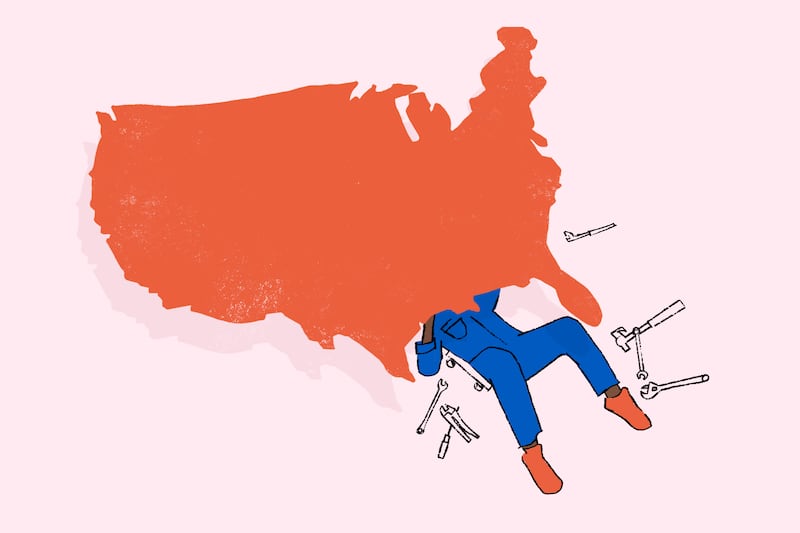If the United States were a person, it would be a teenager — a loud, awkward, risk-taking teenager going through an identity crisis. Confident one moment, insecure the next. Occasionally locking itself in its room while listening to Born in the U.S.A. on repeat. America was once an idealistic startup with disruptive ideas about democracy, freedom and self-governance. Now, it’s dealing with all the classic symptoms of adolescence: growth spurts, mood swings and a messy quest to figure out its place in the world.
The good news is that teenagers grow up. The bad news? It can take a while, and things often get worse before they get better. But if Winston Churchill was right, America will eventually get it right — after it’s tried everything else first.
America’s early years were like a startup in hyper-growth mode — expanding fast, breaking rules and conquering new markets. Then adolescence hit, and things got complicated. Foreign policy became a mix of unilateralism (because “I don’t need help; I can do this myself!”) and occasional collaboration (when we remembered that having friends is actually a good thing).
Like many teenagers, America discovered that being the biggest kid on the block doesn’t mean you can ignore everyone else. Unilateralism is a recipe for disaster. Even a teenager needs friends — the kind who challenge you but have your back when things get rough. That’s where America still holds an edge. Unlike rival powers China and Russia, who operate like the loners at lunch, the U.S. still has friends and allies willing to collaborate.
Every teenager has a phase of terrible financial decisions. For the U.S., it’s spending more money servicing debt than on defense or infrastructure. Imagine your teenager maxing out their credit card on pizza and energy drinks while forgetting to pay for college applications. Not a great long-term strategy.
The U.S. runs large deficits and racks up debt without much thought about tomorrow. Servicing debt now costs more than spending on national defense, leaving less room for future investment in infrastructure, green energy or R&D — all critical for long-term success.
The Department of Government Efficiency (DOGE) might sound like something dreamed up in a high school debate club, but even a teenager needs to learn basic budgeting. To grow into adulthood, America must modernize its fiscal policies, balance long-term investments with immediate needs and stop financing the future with borrowed time.
In a representative democracy, you’re not just voting for policies; you’re choosing judgement and character, as Richard Haas reminds us. Too often, we talk about rights without obligations — forgetting that citizenship is a two-sided coin. One side is freedom, the other is responsibility. You can’t have one without the other.
Similarly, foreign and domestic policy are two sides of another coin. America’s greatest strength has always been its ability to renew itself from within. But domestic chaos weakens international credibility. George W. Bush once said, “If institutions hold, America will self-correct.” Holding institutions accountable while empowering citizens to engage is how America grows up.
Like any teenager, America struggles with who it really wants to be. Realpolitik (the pragmatic pursuit of power and national interest) often clashes with its moral ideals. But history proves these two forces aren’t mutually exclusive. Real leadership comes from balancing pragmatism and principle, competition and cooperation, security and liberty.
Investing in alliances, strengthening multilateral institutions and adopting smarter economic policies aren’t just abstract goals. They’re part of growing up — learning that long-term success requires both integrity and strategic vision.
America is a teenager with all the potential and all the chaos that comes with adolescence. It swings between overconfidence and crippling insecurity, between unilateral decisions and collaborative efforts. But just like a teenager, its greatest asset is its capacity for reinvention.
A sustainable future demands maturity and adaptability. The path ahead won’t be easy, but America’s ability to self-correct, learn from its mistakes and grow stronger is its greatest strength. As Reagan said: “Freedom is never more than one generation away from extinction.” If America can survive adolescence, it’s destined to become the adult nation the world needs.
And hey — if America’s teenage years are tough, just wait for the midlife crisis.

